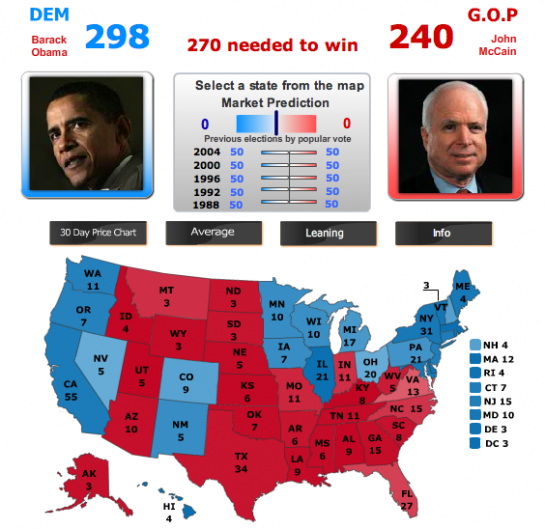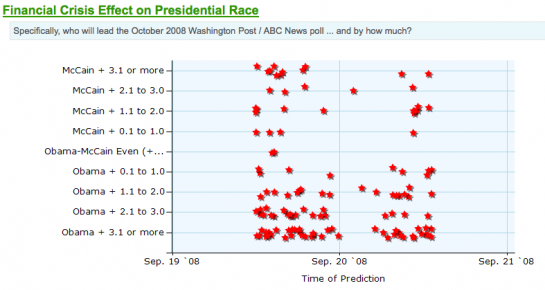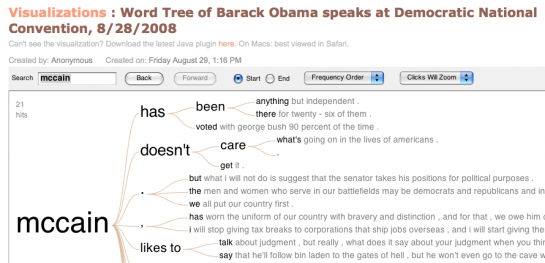James Surowiecki writes in The Wisdom of Crowds that the group is smarter than the individual (under four conditions). Essentially, the premise is that if you get enough different people to work on a single problem independently, you’re going to get as good or better results than that of a small group of experts working together. Think of it as advanced crowdsourcing.
These three applications tap into the wisdom of crowds. It’s clearly election season.
Prediction Markets
Intrade works like a stock market, but instead of buying stocks, you buy shares in your opinion. For example, if you think Barack Obama is going to win the election, invest some money in him. The price of the contract changes with demand in the same way stock prices change for Google. Below is a prediction of election results based on what is currently invested by Intrade users.

[Thanks, Max]
Predict the News
Predictify pays users for correct predictions of the news. I’ve earned a whopping 4 bucks. Topics vary from current events, to pop culture, to sports. You can also put in your own questions to gain some of insight from the crowd.

Social Data Analysis
FlowingData readers are familiar with Many Eyes by now. Users upload datasets and evaluate what they see via a mix of visualizations. Users are also encouraged to evaluate others’ datasets and discuss what they see – hence the phrase of the day, social data analysis.

Do They Succeed?
Whether these three applications successfully tap into the wisdom of the crowd is up for discussion. I already know what I think. More importantly, what do you think?



Please, let’s stop confusing what makes systems like Intrade and Wikipedia work with the concept of wisdom of crowds.
Wisdom of crowds simply reflects the observation that a group of people, when independently consulted, will provide answers that are better than an average single individual.
Intrade and Wikipedia work because their answers, on the other hand, are better than the *best* consulted individual would be able to provide.
That is only possible due to a process of selection of information: simplistically, in both Intrade as Wikipedia, the individuals with more expertise in an issue will contribute with more weight to the final decision.
I think some of the most exciting work in this area is being done by Dolores Labs, who publish a great blog describing their work.
It’s reasonably straightforward to combine answers so that the group consensus is much better than the best individual. There’s some really promising work Dolores Labs did with the Amazon mechanical Turk along this line, which they describe on their blog and in technical papers. I’ve been working on Bayesian models for combining such information, as I describe on the LingPipe blog.
Pingback: Favorieten en bookmarks voor 12 October tot 13 October | Cafe del Marketing